GreenAir’s roundup of the latest news and comment from around the world on efforts by the aviation sector to decarbonise and reduce its climate impact

Deutsche Aircraft prepares to fly D328eco testbed, focusing on SAF rather than novel propulsion technologies
29 April 2025
European airframer Deutsche Aircraft is preparing to unveil the first of three testbed aircraft for its reduced-emission D328eco regional airliner programme as it targets 2027 for certification and entry into service. In an increasingly challenging market for new turboprop aircraft and low-or-no-emission propulsion systems, the company has strategically based its new 40-seat model on an existing airframe, the 34-year-old Dornier 328, powered by Pratt & Whitney Canada PW127XT-S engines capable of operating with 100% sustainable aviation fuel. The D328eco is designed to increase passenger capacity by 25% over its 32-seat predecessor while reducing by 14% the fuel consumption per passenger. By evolving an in-service design with a 2.2 metre fuselage stretch and adding upgraded engines, avionics and lightweight cabin fittings and seats, Deutsche Aircraft is confident it can significantly shorten its path to certification and commercial deployment compared to competitors pursuing more complex approvals of all-new airframes and powertrains.

European consortium applies for funding towards new UK SAF production facility
29 April 2025
A new sustainable aviation fuel consortium that is aiming to produce 250,000 tonnes of SAF a year from certified agricultural, forestry and processing residue in northwest England has applied for UK government funding to accelerate its project. The GRAMM Consortium includes major European energy and technology partners such as TotalEnergies, Axens and thyssenkrupp, which have developed a French end-to-end technology platform called BioTfueL. The project aims to capture and permanently store 1.5 million tonnes of CO2 during production, reducing carbon emissions four times more than a benchmark set out in the UK SAF Mandate, says the consortium. It claims the project could deliver 53.5% of the UK’s 2035 SAF target at a “market-leading price” and create 850 new jobs, bringing economic revitalisation to a hard-hit region. The proposed location for the GRAMM SAF project is the Royal Port of Barrow, operated by Associated British Ports (ABP).

ICAO “deeply concerned” over proposals to raise global climate finance through international levies on aviation
22 April 2025
In a letter to its 193 member states, ICAO Secretary General Juan Carlos Salazar has urged them to “express a clear concern” over proposals elsewhere for countries to impose new taxes or levies on international aviation to help mobilise global climate finance. In 2009, developed countries agreed to raise $100 billion annually to support climate action in the developing world, which was replaced by a new goal of $300 billion a year at COP29 in Baku last November, potentially scaling up to at least $1.3 trillion a year by 2035. A number of UN bodies and international organisations, including the International Monetary Fund, have put forward proposals that identify the aviation and maritime sectors as potential sources of funding. An article on the ICAO website says the proposals are “deeply concerning” as they undermine the efforts and achievement by ICAO to develop a single global market-based measure – CORSIA – for international aviation.

Qantas and Airbus pursue SAF technologies through venture capital investment
22 April 2025
Qantas and Airbus have partnered with Australian venture capital fund Climate Tech Partners (CTP) to accelerate development of sustainable aviation fuel and other decarbonisation technologies. Australia’s largest airline group and the European airframer have jointly committed to invest A$15 million (US$9.6m) with CTP, which in turn will identify and invest in local and global start-ups in the SAF and aero-tech sectors. The investment will come from a US$200 million fund established by Qantas and Airbus in 2022 largely to accelerate SAF production. Together with US-based alcohol-to-jet SAF producer LanzaJet and the Queensland state government, the two are also backers of Project Ulysses, a new bioethanol SAF plant being developed by Jet Zero Australia near Townsville, in north-east Queensland. That project is targeting annual production of 102 million litres of SAF and 11 million litres of renewable diesel, commencing in 2028.

IATA activates independently managed global SAF Registry for airlines, suppliers and corporates
22 April 2025
The International Air Transport Association (IATA) has established a global registry for sustainable aviation fuel to provide airlines with access to supplies and enable them to claim their SAF purchases as contributions to climate-related obligations. The registry, to be managed independently by IATA’s newly formed Civil Aviation Decarbonisation Organisation (CADO), is designed to connect carriers with SAF producers and suppliers globally, and to record SAF transactions “in an immutable way” through a standardised and transparent process. CADO will track and record the environmental attributes of the fuel purchases to protect against double-counting, enabling airlines, fuel producers, regulators and other stakeholders to accurately record details of their SAF deals. It will also provide corporate customers of passenger and freight airlines with access to in-sector emissions reductions which they can offset against their own flight impacts, while tapping their ability to share the cost of decarbonising air transport.

ASEAN and Canada study finds Southeast Asia could be a key SAF producer and exporter
14 April 2025
A high-level trans-Pacific research programme has concluded that abundant supplies of agricultural feedstock across multiple countries in Southeast Asia could facilitate the region’s emergence as a key global supplier of sustainable aviation fuels. The study was undertaken by the Association of Southeast Asian Nations (ASEAN), the Canadian Trade and Investment Facility for Development (CTIF), Boeing and GHD, a global network of engineering, construction and environmental professionals focused on advancing sustainability and resilience. It was funded by Global Affairs Canada, the government department with responsibilities including trade and international development. A technical-economic assessment was performed in seven countries, examining feedstock availability, technology pathways, carbon intensity, logistics, environmental and social elements, institutional frameworks and financial assessment.

RAeS study shows public concern about aviation emissions, but unwillingness to pay more for solutions
11 April 2025
New research by the Royal Aeronautical Society (RAeS) into public attitudes on decarbonising aviation reveals that most respondents are concerned about the impacts of climate change, and 58% believe air transport causes more damaging emissions than road, rail or sea modes, but only 38% would pay more for their flights to help remediate flight carbon emissions. The survey, conducted for the RAeS by Ipsos UK, asked more than 2,000 UK respondents aged 16-75 years a range of questions concerning air transport’s impact on climate damage and measures to remediate environmental damage, to help sharpen future communication around options for cleaner flight. The research coincided with growing concerns about aviation meeting its steep decarbonisation targets amidst increasing doubts within the sector and funding challenges for many new fuel and aircraft developers.

Neste starts SAF production at its Rotterdam refinery with an initial 500,000 tons annual capacity
11 April 2025
Finnish energy company Neste, which describes itself at the world’s leading producer of sustainable aviation fuel, has started producing SAF at its renewable products refinery in Rotterdam, the Netherlands. Modifications to the refinery enable production of up to 500,000 tons of SAF per year, says Neste, thereby increasing its annual global SAF production capability to 1.5 million tons, or 1.875 billion litres. In addition to the recent modifications to the refinery, the company says it will continue investing to grow the Rotterdam capacity to make the facility the world’s largest producing renewable diesel and SAF. The expansion plans come despite what Neste CEO Heikki Malinen described recently as an “unsatisfactory” financial performance by the company in 2024 and a “very challenging” current market environment that has now resulted in the loss of 510 jobs globally, nearly 10% of its workforce.

Carbon project developers warn of a supply shortage of CORSIA eligible credits
9 April 2025
The Project Developer Forum (PD Forum), a body representing developers of greenhouse gas emissions reductions and removal projects in the international markets, with members looking to sell carbon credits to airlines under ICAO’s CORSIA carbon offsetting scheme, has written to the UN agency to raise concerns over CORSIA implementation. It calls for ICAO’s Technical Advisory Body (TAB), which recommends for approval by the governing ICAO Council eligible emissions units that can be used by airlines under the compliance scheme, to engage with project developers to avoid a potential shortfall of eligible credits. Against a specific eligibility criteria, TAB assesses individual emissions unit programmes that administer standards and procedures for developing carbon offset projects and verify offsets, or units, created by those projects. It does not assess offset retailers or project developers.

Microsoft backs SAF for Scope 3 business travel emissions in agreements with IAG and FEG
4 April 2025
In what they describe as the largest and longest Scope 3 sustainable aviation fuel deal to date, International Airlines Group (IAG) and Microsoft have extended their 2023 co-funded SAF purchase agreement by five years. Under the new terms, Microsoft will co-fund an additional 39,000 tonnes of SAF that will help reduce lifecycle carbon emissions by around 113,000 tonnes. The SAF will be produced in the UK by Phillips 66 and in the United States at LanzaJet’s commercial-scale alcohol-to-jet Freedom Pines Fuels facility. Under a separate agreement, Dublin-headquartered Future Energy Global (FEG) will supply Microsoft with Scope 3 certificates derived from airline purchases of SAF. As defined by the Greenhouse Gas Protocol, emissions from a flight fall under an airline’s direct responsibility (Scope 1) but a company, in this case Microsoft, is responsible for its staff’s share of business flight emissions (Scope 3).

Virgin Australia and Qatar Airways to partner on new Australian SAF production project
3 April 2025
Virgin Australia and its new 25% shareholder, Qatar Airways, have announced that they will partner with Renewable Developments Australia (RDA), a Brisbane-based company with plans to develop a claimed 100% sustainable aviation fuel by converting bioethanol derived from sugarcane at a new facility near Charters Towers, a regional town in far north Queensland. Subject to final investment approval, RDA plans to construct an ethanol-to-jet (EtJ) plant near the inland town, using cane grown onsite. The company is aiming to produce up to 96 million litres of SAF per year, beginning in 2029, leveraging technologies from multiple international partners, and said it has a written commitment from Boeing to provide policy advocacy and technical expertise. In another Virgin Australia SAF partnership just announced in North Queensland, the airline will source blended fuel from Viva Energy at coastal Proserpine Airport between March and July this year.

Airbus resets hydrogen plans, flags new aircraft and announces multiple sustainability initiatives
2 April 2025
Airbus has reaffirmed its commitment to hydrogen-powered flight to help reduce aviation’s carbon emissions, just over a month after shelving an earlier, high-profile concept under its ZEROe programme, citing slow development of essential technology. At a technical briefing held at its Toulouse headquarters, the company revealed a new focus on fully electric aircraft energised by hydrogen fuel cells. It also announced it is exploring a next-generation narrowbody aircraft, powered by up to 100% sustainable aviation fuel and featuring new propulsion and construction technologies, for entry into service in the second half of the 2030s. Additionally, Airbus highlighted its participation in four more projects: two to more deeply investigate non-CO2 emissions, one to build demand for SAF through a new book-and-claim process and another to use aviation and aerospace technologies to support nature-based initiatives.

EASA releases 2024 reference prices for ReFuelEU aviation fuels ahead of major report
1 April 2025
The European Union Aviation Safety Agency (EASA) has released a list of 2024 reference prices for sustainable aviation fuel and other relevant air transport fuels under the ReFuelEU Aviation programme, ahead of a full report in September to assess the state of the region’s SAF market and compliance of obligated parties. With the exceptions of conventional aviation fuel and aviation biofuels, for which market prices are available, the EASA price guide for multiple new fuel types estimates production costs including feedstock, energy and technology deployment. The 2024 reference prices follow the New Year imposition by the EU of minimum SAF blending mandates at its airports, and vary from EASA’s 2023 estimates, which were released in December. The EASA assessments reflect lower average prices for conventional aviation fuel and aviation biofuels in 2024 compared to 2023. But in the latest estimates of production costs for new aviation fuels, including synthetic and hydrogen products, many are now more expensive.

UK government plans to fund SAF revenue mechanism through a levy on fuel suppliers
3 March 2025
The UK government has opened a short consultation into how a proposed price guarantee mechanism to reduce the risks of revenue uncertainty for SAF producers in the UK can be funded. Having carried out a previous consultation on the form the mechanism should take, the government now proposes the selected revenue certainty mechanism (RCM) should be funded by industry, preferably through a levy on jet fuel suppliers. The RCM aims to ensure a steady income flow for producers, even if the price of SAF fluctuates, helping to keep costs down for airlines while providing risk confidence to potential big investors, who have so far failed to emerge. Having supported a number of SAF production start-ups with grants through its Advanced Fuels Fund and the introduction in January of a SAF mandate, the RCM is expected to be the final piece in government policy to kick-start a UK SAF industry.



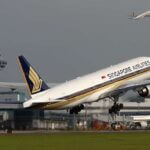
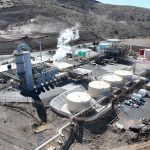
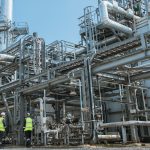
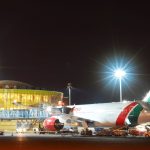
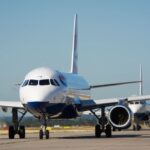
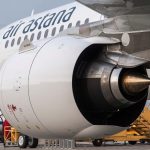

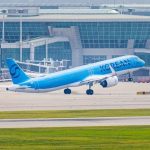




More News & Features
News Roundup October 2025
News Roundup September 2025
News Roundup August 2025
News Roundup July 2025
News Roundup June 2025
News Roundup May 2025